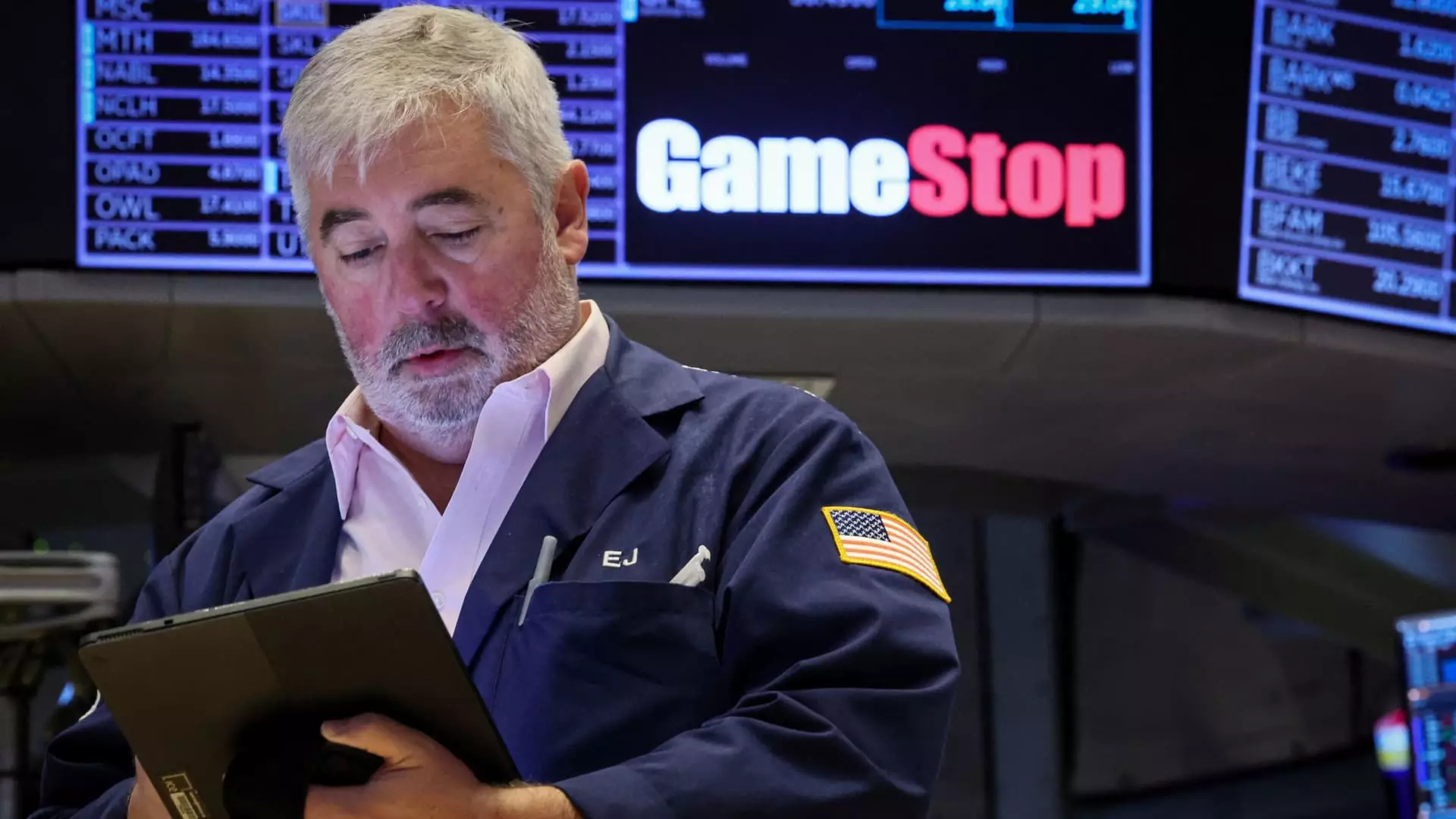GameStop’s recent venture into the volatile world of cryptocurrencies, notably Bitcoin, has stirred a mix of excitement and skepticism among investors. Following an impressive rally that saw shares soar nearly 12%, the stock plummeted by over 12% the very next day, a telling sign of the fickle nature of its current valuation. This rollercoaster ride signifies a broader issue: the declining confidence investors have in the meme stock phenomenon. Simply put, how long can the hype sustain values that are clearly detaching from the underlying business fundamentals?
The Debt Puzzle: A Risky Strategy
The video game retailer’s decision to raise $1.3 billion via the sale of convertible senior notes to fund cryptocurrency acquisitions raises red flags about GameStop’s strategy. Instead of investments aimed at strengthening core business operations in a rapidly evolving gaming industry, GameStop appears to be mirroring strategies made famous by companies like MicroStrategy. This has sparked concern among analysts who question not only the viability of such a maneuver but also the wisdom behind relying on the popularity of an asset as tumultuous as Bitcoin. Is turning to Bitcoin really the answer to GameStop’s underlying structural issues?
Valuation Conundrum: Real Fundamentals vs. Echo Chamber Values
According to Wedbush analyst Michael Pachter, GameStop’s valuation—set at a staggering $12.7 billion—exceeds its projected cash reserves of $6.1 billion. This financial strategy, which sees the firm trading at more than double its cash holdings, raises critical questions: Is this valuation sustainable? Or is it merely a reflection of a speculative bubble confined within a social media echo chamber? Unlike MicroStrategy, who enjoys a valuation close to their Bitcoin holdings, GameStop’s trajectory appears less justifiable, putting investors in a precarious position as they grapple with overvaluation amidst an asset class fraught with uncertainty.
Meme Stock Culture: The Whims of Social Media and Speculation
GameStop’s predicament serves as a cautionary tale about the culture of meme stocks and their influence on financial markets. Fueled predominantly by social media, this phenomenon has led to wild surges and disastrous plunges without the grounding of solid financial performance. As GameStop steps further into the realm of cryptocurrency, it exposes itself to even larger waves of speculation, undermining any remaining investor confidence in its long-term viability. How long before the social media fervor dwindles, leaving a hollow shell of a company clinging to the dregs of its previous successes?
Trust and Transparency in Question
Moreover, the transition into cryptocurrency thrusts GameStop into a realm where trust and transparency are paramount. Analysts like Pachter are already voicing doubts about the company’s ability to sustain market interest amid questionable strategies. If investors are required to “have faith” in the longevity of GameStop’s meme status while clutching onto an underpinned debt strategy, it raises serious questions about the integrity of the company’s leadership. Will GameStop be able to explain and justify its decisions to long-term shareholders, or will it risk alienating its base in pursuit of fleeting trends?
GameStop’s bold venture into Bitcoin is indicative of a larger risk taken by companies straddled between the world of tradition and the disruptive nature of modern finance. The results of this gamble—not merely in financial terms, but in reputational and structural integrity—must be observed closely as they unravel in real-time.

